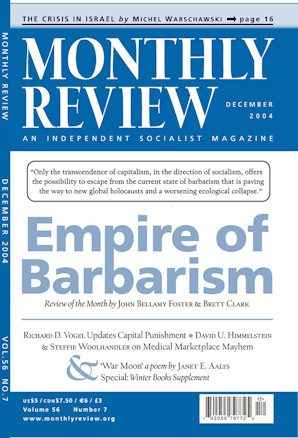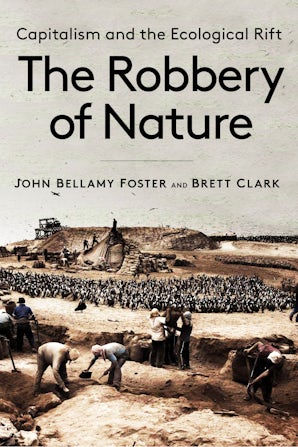Also in this issue
Books by Brett Clark
Unequal Exchange
by Arghiri Emmanuel
Notes by Charles Bettelheim
Foreword by Torkil Lauesen
Introduction by John Bellamy Foster and Brett Clark
The Ecological Rift
by John Bellamy Foster, Richard York and Brett Clark
The Robbery of Nature
by John Bellamy Foster and Brett Clark
Critique of Intelligent Design
by John Bellamy Foster, Brett Clark and Richard York
The Science and Humanism of Stephen Jay Gould
by Richard York and Brett Clark
Article by Brett Clark
- Eco-Marxism and the Reconstruction of Materialist Dialectics
- Western Marxism and the Myth of Capitalism's Adamantine Chains
- Introduction to the Updated Edition of Arghiri Emmanuel's ‘Unequal Exchange’
- Robert W. McChesney (1952–2025): A Personal and Political-Intellectual Memoir
- Eco-Marxism and Prometheus Unbound
- Ecological Marxism in the Anthropocene
- Marx and Communal Society
- ‘Gleichschaltung’ in Nazi Germany
- The Trump Doctrine and the New MAGA Imperialism
- MAGA Ideology and the Trump Regime






